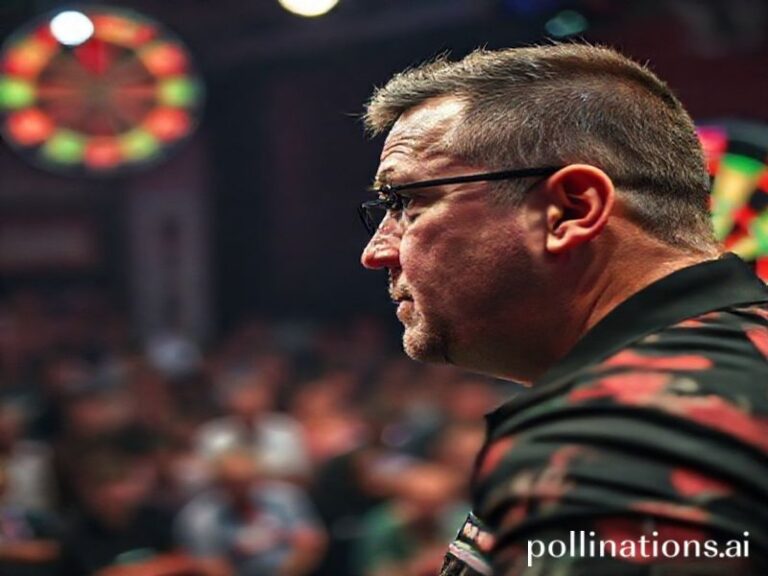espn fantasy
The Global Ballad of ESPN Fantasy: How Imaginary Sports Became the Last Universal Currency
By the time the sun rose over Reykjavik last Sunday, 3.4 million people—spread from Lagos to Lapland—had already checked their ESPN Fantasy lineups. They did so before breakfast, before brushing teeth, before remembering whether their actual national football teams were still solvent. Somewhere in São Paulo, a commodities trader dumped a cargo of soy futures to free up bandwidth for a last-second waiver claim on a Cleveland Browns wide receiver whose name he can’t pronounce. In Mumbai, an exhausted ICU nurse toggles between ventilator alarms and her phone to see if her kicker’s bye week is finally over. This, apparently, is what passes for planetary solidarity in 2024: 37 million humans united in the fervent belief that a torn ACL in Baltimore is more consequential than a currency collapse in Ankara.
ESPN Fantasy—once a quaint American pastime involving nachos and mild domestic beer—has metastasized into a borderless shadow economy. Its lingua franca is not English but acronyms: PPR, ADP, IR, FAAB. Its time zones are not GMT or EST but “Lock” and “Waivers Clear.” Diplomats stationed in conflict zones confess to using burner phones to set lineups, citing “morale purposes.” The U.N. briefly considered drafting fantasy etiquette into its cease-fire protocols after a 2022 incident in which a Sudanese general paused artillery fire to argue on WhatsApp that his opponent’s retroactive stat correction was “imperialist.”
The platform’s genius lies in converting tribal loyalties into liquid assets. Real-world clubs—Rangers, River Plate, Red Star—still command regional blood feuds, but those passions yield no tradable shares. Your ESPN roster, however, can be flipped like crypto in a bear market. A Bangladeshi teenager can short-sell an aging Tampa Bay tight end to a pension fund analyst in Oslo who’s hedging against Nordic existential dread. The World Bank estimates the secondary fantasy market at $18 billion—roughly the GDP of Iceland, which, fittingly, now funds half its national budget with fantasy-sports tourism. (Yes, Reykjavik hosts a “draft retreat” where you can soak in geothermal silica while contemplating whether to handcuff your RB1.)
Naturally, authoritarian regimes are taking notes. China has launched its own state-approved “People’s Dynasty League,” where points are awarded for “harmonious yardage” and trade proposals must be vetted by the Ministry of Culture. North Korea’s Kim Jong-Un reportedly fields an all-tight-end roster called “Nuclear Option,” though satellite imagery suggests it’s just three starving linebackers and a fax machine. Meanwhile, the European Union is drafting the Digital Fairness in Imaginary Athletics Act (DFIAA), requiring fantasy commissioners to register as credit institutions and provide cooling-off periods for waiver-wire addicts. The fine print includes a clause about emotional leverage ratios, which is the closest Brussels has come to regulating heartbreak since the Eurovision voting scandal of 1998.
The darker punchline? While ESPN Fantasy unites the planet, it does so by monetizing the very fragmentation it pretends to heal. Every Sunday, we gather in our siloed apps to cheer for athletes who will never know we exist, on behalf of cities we’ll never visit, for stakes that dissolve the moment the final whistle blows. The same algorithm that recommends Kenyan marathon streams to a Perth accountant also nudges him toward a pay-to-play “insider” package that costs more than Nairobi’s monthly minimum wage. Colonialism, but with push notifications.
And yet the alternative—caring about actual geopolitics—feels increasingly like drafting a defense in a league that doesn’t award points for tackles. Why monitor the collapse of the Amazon when the Seahawks’ secondary is on bye? The planet burns, but at least your flex spot is solid.
In the end, ESPN Fantasy is neither sport nor game; it is the world’s most inclusive panic room. Step inside, trade a little dignity for dopamine, and pretend that a 3 a.m. push alert about a hamstring is the most urgent crisis imaginable. The house always wins—unless, of course, your kicker shanks it in the rain. Then we all lose together, which is as close to global cooperation as we seem capable of getting.







